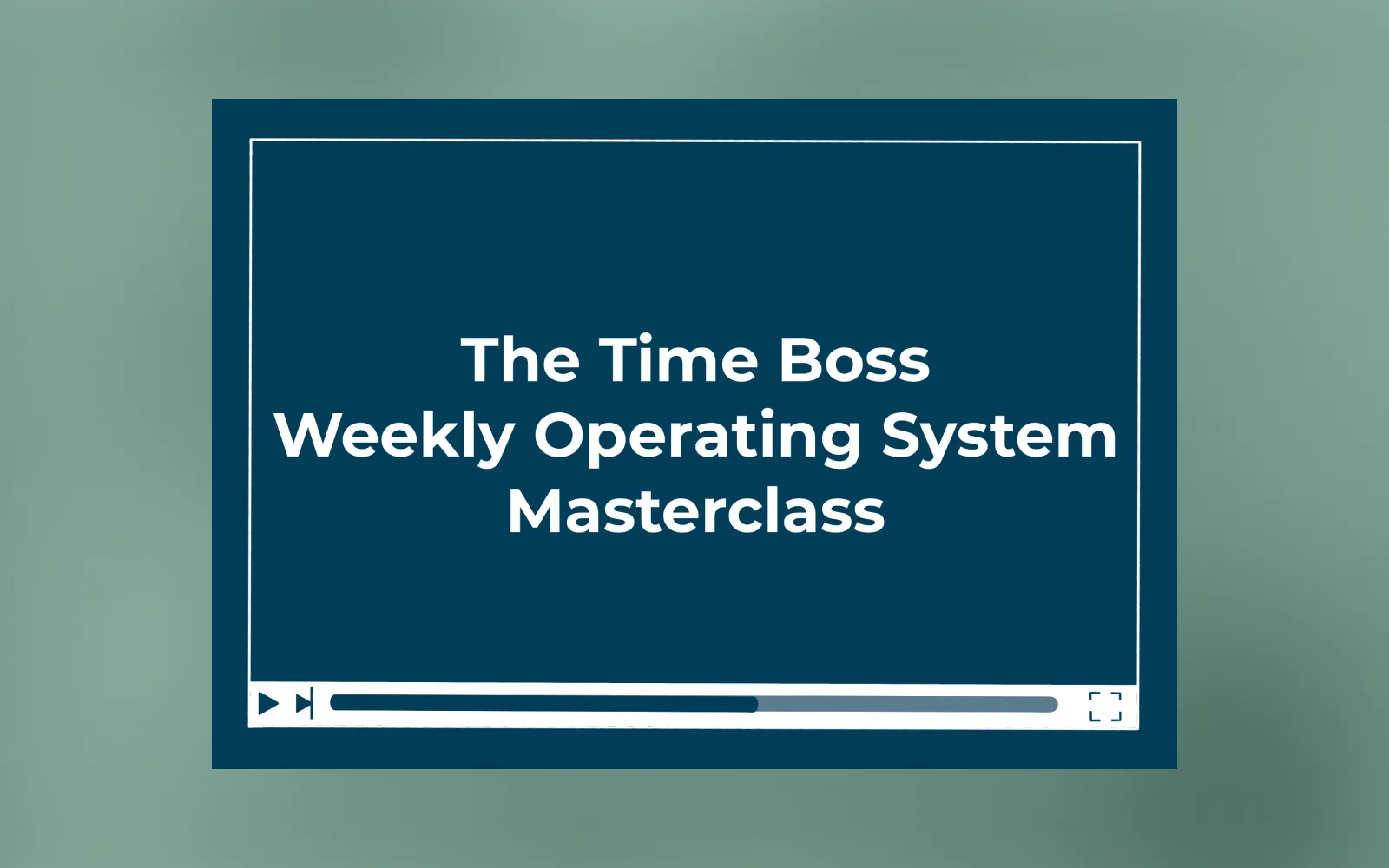You Have 168 Choices Next Week
Jan 15, 2025As you read this, an hour of your life just ended.
That hour, like every hour, left you with two results:
- Outcomes, such as progress on a project, pages read in a book, chat messages or emails replied to, relationship nurtured with a friend or family member, etc.
- Emotions, such as stressed, peaceful, happy, sad, etc.
These outcomes and emotions from your last hour are a direct result of the choices you made about what to do over the course of that hour.
Your experience of life is a combination of the outcomes you produce and the emotions you feel, hour after hour after hour.
You can either choose what you do with your hours intentionally, or you can let life happen to you.
How can you use this to your advantage?
Your Next Week Has 168 Hours = 168 Choices
Most people spend the hours of their week in reactive mode putting out fires, answering emails, attending meetings, and handling unexpected tasks. They end up exhausted, wondering where all the time went. They choose to not plan out their week and make choices about their hours, and the outcomes and feelings as a result are a mixed bag at best.
When you fail to plan out your week and make choices about how you spend your hours, you are handing over control to whatever demands your attention next, and this is often other people's priorities, not your own.
Your next week has 168 hours, which means 168 choices that will generate the outcomes and emotions you experience.
Take a moment to jot down the answer to this question: as you consider your next week, what outcomes do you want to produce, and what emotions do you want to feel?
Now, you might have quite a list of things on paper, but I guarantee you didn't write outcomes like "respond to emails", "get interrupted repeatedly", "sit in meetings all day". And I guarantee you didn't write feelings like "fear", "stress", or "overwhelm". Yet without designing your week and making choices ahead of time, this might be exactly the outcomes and feelings you'll get.
The only way you get the results you actually want is if you choose to plan out your week and protect your time.
Here's a blueprint for how to do so.
Get the Results You Want by Designing Your Week
-
Get Clear on Your Priorities :: Start by identifying what matters most for the week ahead. What absolutely must happen due to promises or commitments? What else would you like to happen based on your values and goals?
-
Divide Up Your Week :: Divide your 168 hours into categories such as work, family, health, personal growth, and sleep. Budget a rough estimate of how much time you’d ideally like to spend in each area. For example, you may want to sleep 7 hours a night, dedicate 3 hours Monday through Friday morning to focused deep work, 2 hours a day to be available to your team, spend an hour every morning exercising, spend 4 hours in the evening with your family, etc. You decide. It's your choice.
-
Block Your Time :: With your week divided up and the priorities you clarified (in step 1), block time on your calendar for each of your items you identified. For example, you might block time for that critical project you need to advance during your morning focused deep work time, or you might block dinner at home at 6pm. Treat these blocks as sacred that you never miss, as if the president of the United States is showing up to the meeting (you can choose which president 😀).
-
Protect Your Time :: In order to actually followthrough on your priorities you blocked on your calendar, you have to protect your time. You do this through minimizing distractions, such as turning off non-critical notifications or shutting your door. You can also communicate with teammates and loved ones about your schedule to help them both understand the value of what you've scheduled to help you focus, and give them confidence that you have time for them dedicated on your calendar.
-
Be Ready to Adjust :: At the end of each day or week, evaluate how well you followed your plan. What worked? What didn’t? What course correction is needed? You should expect friction, and make tiny changes to respond to the friction. For example, maybe you checked your email instead of doing your focussed deep work task, and got totally sidetracked by it. Tomorrow you can make the adjustment to just drop into your focused deep work task and avoid your email. You don't have to (and won't be) perfect tomorrow, but you can get better every day.
By intentionally designing your week, you can ensure that your 168 hours create the outcomes and emotions you want, leaving you more fulfilled and in control of your time.
Crank it Up a Level: Master Your Week
I believe you have what it takes to take design your week to get the results you want: life-giving personal or financial freedom, career growth like you’ve never experienced, and contribution to the things you care deeply about.
Designing your week is simple in nature, but hard to followthrough in practice, and Time Boss is here to help. Stay connected to the blog, subscribe to the newsletter, grab a free Time Boss resource, or even jump in a “Master Your Week” course (offered quarterly).
Not sure where to start? Schedule a 25 minute meeting with a Time Boss coach. At a minimum, we’ll look at your calendar with you and see how we can get a quick win. What do you have to lose?
Master Your Time Each Week with the "It's About Time" Newsletter
Practical tips, helpful guides and more delivered weekly.


